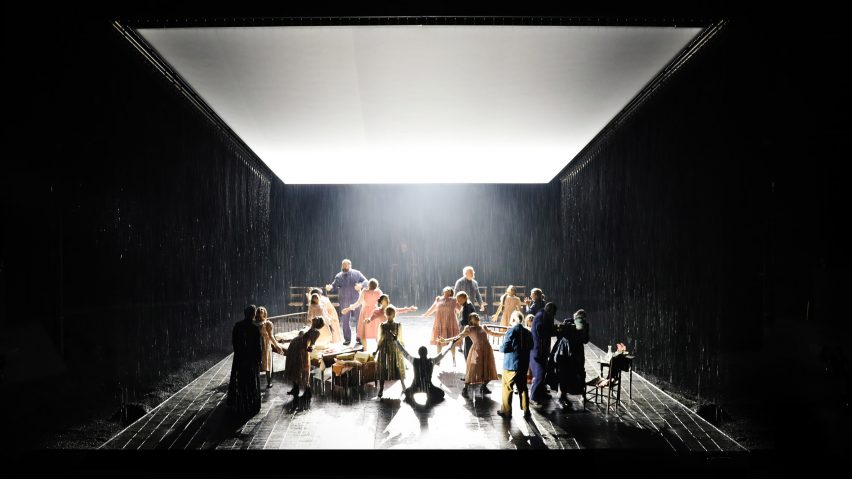
Es Devlin's The Crucible set features cyclical rain installation to symbolise "chaos"
A geometric installation that pours with rain features in the set design for The Crucible, created by Es Devlin to enhance the on-stage storytelling of playwright Arthur Miller's drama about the Salem witch trials.
Currently playing at the Gielgud Theatre in London's West End after an initial run at the National Theatre, The Crucible features a set by British designer Devlin that evolves throughout the show.
Miller wrote The Crucible about women accused of witchcraft in Massachusetts during the 1600s, but the 1953 play is also an allegory for McCarthyism – a widespread fear of alleged communism in the 1950s in America.
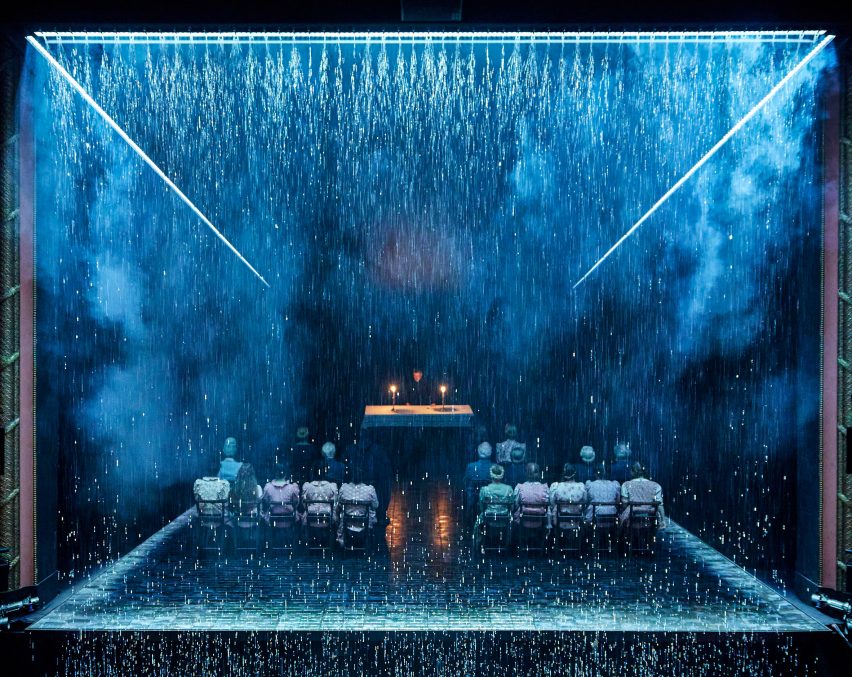
The play's centrepiece is a trapezoid form that was built into the ceiling at an angle.
This produces illuminated rainfall from bespoke bars suspended in a strip at the front of the stage – a scene that audiences first experience when they take their seats before the play begins.
Surrounding the back of the stage are mounds of earth, which are not initially obvious until closer inspection.
"Lyndsey Turner, the director, and I researched the play and the period of the first settlers in America and imagined them striving to maintain order amid what they perceived as chaos and wilderness surrounding their community," explained Devlin.
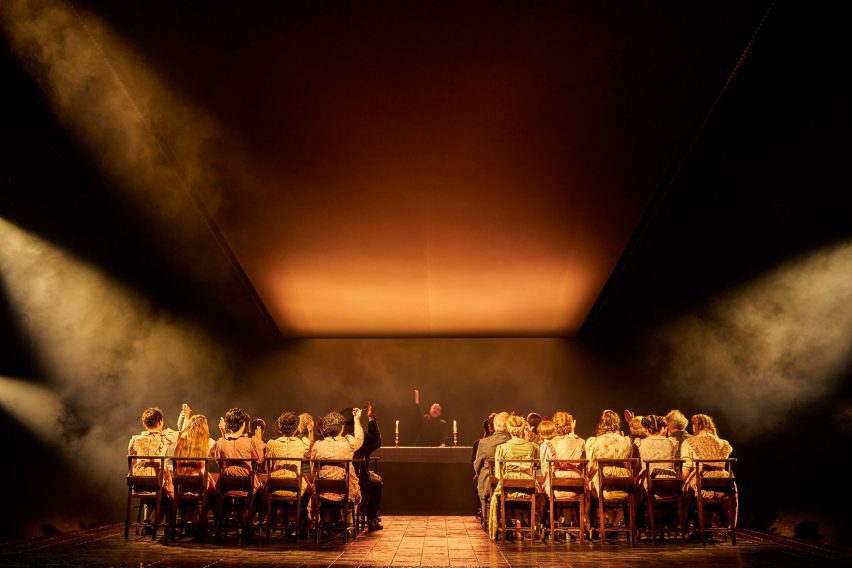
"The rain and earth conjure for the audience how precarious their community order may have felt to them," she told Dezeen.
Arranged 150 millimetres apart, the rain bars produce a uniform downpour of water, which drains through a gutter at the bottom of the stage before being stored in a closed system and repeatedly reused by the installation.
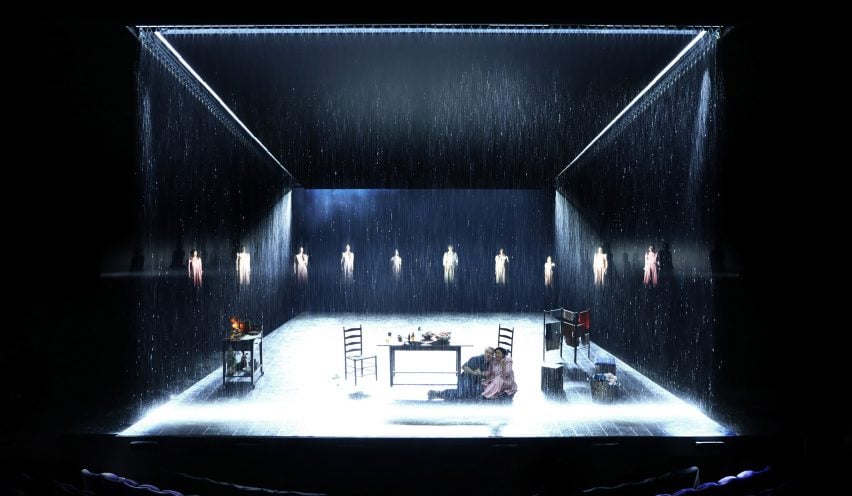
The stage floor was clad with glazed tiles, chosen for their simplicity.
"We limited the range of materials to conjure the limited means that would have been available to this community," said Devlin.
Another key aspect of the set design is the use of chairs, which are reconfigured by the actors against the backdrop of the rainfall as the drama unfolds.
While the play begins with 40 chairs arranged in meticulous rows to depict a church congregation, the furniture becomes strewn across the stage during various scenes to highlight the waning sense of "order" in the community, according to the designer.
"The rain is used as an atmospheric as well as a scene-changing device, encompassing the stage between scenes as performers reset furniture," explained Devlin.
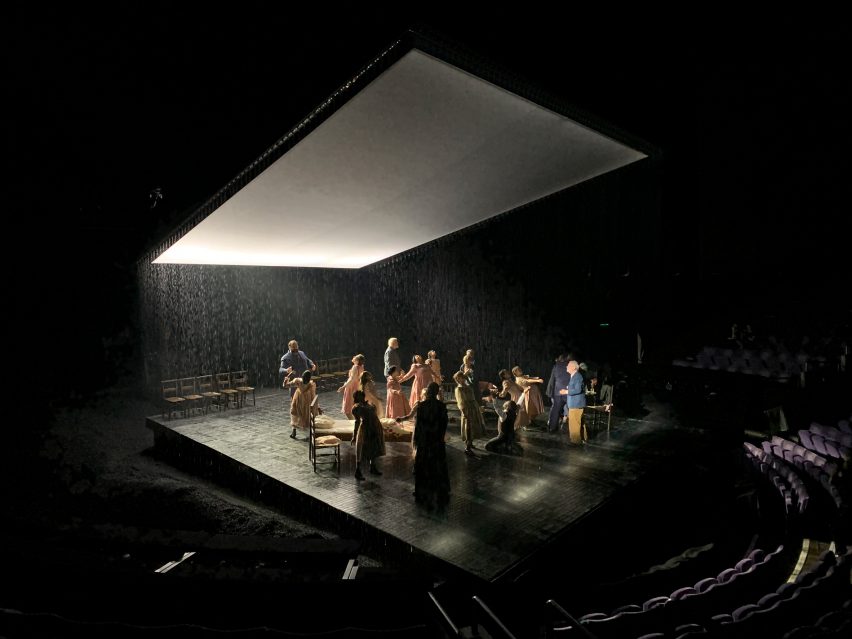
"The play is so tightly crafted that it will take an audience by the throat and propel them through to its conclusion," continued the designer.
"The role of a director and designer here is primarily to avoid getting in the play's way, and to support its propulsion. We avoided distracting the audience with too much period detail but included enough context for the world to be believable," she added.
"I aimed to create an environment that would support this potent visceral text as it grabs its audience by the guts – [the play is] as urgent now as it has always been."
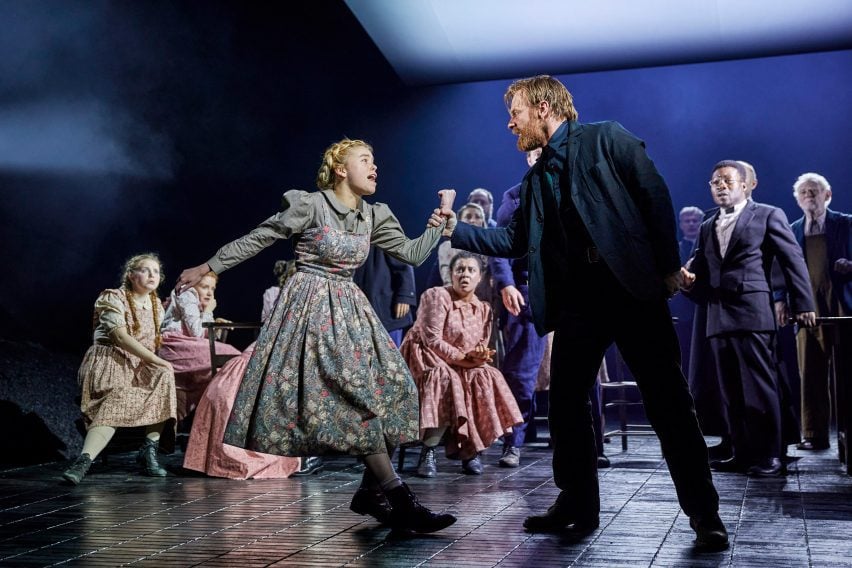
On show until 2 September, The Crucible stars actors including dramedy Succession's Caitlin FitzGerald and Brian Gleeson, who has featured in the period crime drama Peaky Blinders.
Previous projects by Devlin range from a glowing monolithic ring designed for a Saint Laurent menswear fashion show that took place in the Moroccan desert to a temporary cathedral-like structure that was installed outside London's Tate Modern museum to highlight the city's endangered species.
The photography is by Brinkhoff Mögenburg and Daniel Devlin.